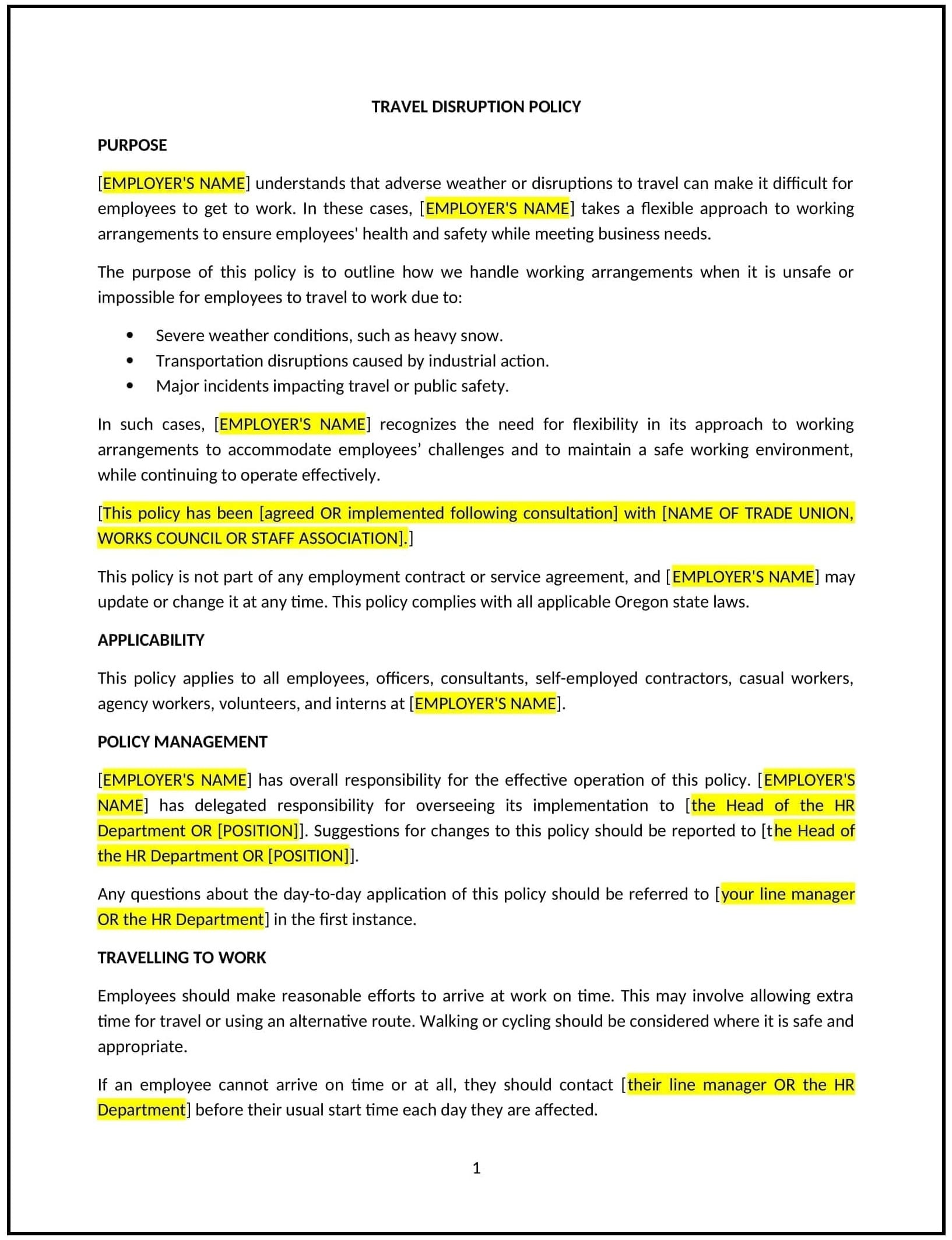Got contracts to review? While you're here for policies, let Cobrief make contract review effortless—start your free review now.

Customize this template for free
Travel disruption policy (Oregon)
This travel disruption policy is designed to help Oregon businesses address challenges employees may face due to unforeseen travel delays or interruptions. The policy outlines expectations, communication procedures, and steps to minimize disruptions while supporting employee safety and productivity.
By implementing this policy, businesses can manage travel-related issues effectively and ensure continuity of operations.
How to use this travel disruption policy (Oregon)
- Define travel disruptions: Clearly specify what constitutes a travel disruption, such as flight cancellations, severe weather, or transit strikes.
- Establish communication protocols: Require employees to notify their manager or designated contact immediately in the event of a travel delay or disruption.
- Provide alternative arrangements: Outline procedures for rebooking travel, securing temporary accommodations, or rescheduling meetings.
- Address expense reimbursement: Specify which travel-related costs, such as lodging or transportation changes, will be reimbursed.
- Emphasize safety: Encourage employees to prioritize their safety and follow company guidelines during disruptions.
- Offer remote work options: If applicable, allow employees to work remotely until they can resume their travel plans.
- Review regularly: Periodically assess the policy to reflect updates in travel practices, business needs, or Oregon-specific considerations.
Benefits of using this travel disruption policy (Oregon)
Implementing this policy provides several advantages for Oregon businesses:
- Enhances employee safety: Clear guidelines help employees navigate disruptions safely and efficiently.
- Minimizes operational delays: Proactive planning ensures business continuity during travel disruptions.
- Provides clarity: Employees understand their responsibilities and available support during travel-related incidents.
- Reduces stress: Reimbursement and alternative arrangements alleviate the burden of unexpected travel costs.
- Reflects Oregon-specific practices: Tailoring the policy to local conditions ensures its practicality and relevance.
Tips for using this travel disruption policy (Oregon)
- Communicate policy details: Share the policy with employees who travel for business, ensuring they understand expectations and resources.
- Prepare for emergencies: Provide employees with an emergency contact list and guidelines for handling travel disruptions.
- Monitor travel risks: Stay updated on potential travel disruptions, such as weather alerts or transportation strikes, and inform employees proactively.
- Encourage flexibility: Foster a culture where employees feel supported during unforeseen delays or changes.
- Gather feedback: Use employee experiences to refine the policy and improve its effectiveness.